Chilwell resident Michael Noble looks at a dark event from the district’s wartime past…
It wasn’t over by Christmas. The extended duration of the war wasn’t entirely unexpected (eagle-eyed members of Kitchener’s New Army will have spotted that they’d signed up for ‘three years or until the war was over’) but it wasn’t necessarily planned for either. Several months of heavy shelling, with hungry guns well-supplied by rail, led to the rapid depletion of high explosive shells by early 1915. The resultant ‘shell crisis’ was a notable scandal in many combatant countries and in Britain led to political turmoil that saw the creation of a coalition government and the founding of a Ministry for Munitions, led by David Lloyd George.
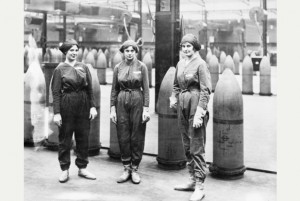
Existing arms factories were brought under tighter official control and several new installations were created, among them No. 6 Filling Factory at Chilwell in Nottinghamshire. The dangerous duty of the filling factories was to take the explosive chemical compounds and add them to the empty shells that had been made for the purpose. The Chilwell factory, like many such places, was staffed largely by women, nicknamed ‘munitionettes’ or ‘canaries’, owing to their yellow complexions, caused by their absorption of poisonous chemicals.
The Chilwell factory was efficient (evidence suggests that Chetwynd was a hard taskmaster) and filled over nineteen million shells during the war. It was, nevertheless, dangerous work. Factory staff wore rubber boots in an effort to avoid making sparks that could set off a deadly conflagration. Rings and shoelaces were banned. You can never be too careful. Sadly, you can still never be careful enough. On the 1st July 1918 a massive explosion occurred, destroying much of the installation, killing 134 people and injuring 250 more.
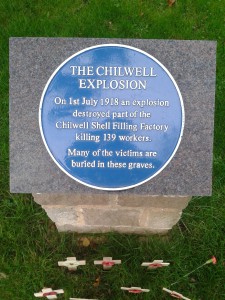
The disaster had an understandable impact on those who survived it. It did not, however, break their spirit or commitment and the factory continued to produce shells, achieving its highest weekly output within a month of the explosion. The event was subjected to a thorough investigation and, while Chetwynd suspected sabotage, this could not be proven.
Of course, the factory did eventually cease production several months later when the Armistice was declared. The site is now owned by the Ministry of Defence and is home to the Chetwynd Barracks. a memorial to those who died in the explosion was erected in the grounds and still stands today. A plaque offers some details of the events of wartime, but like the factory staff themselves, remains focused on the output of shells:
Erected to the memory of those men and women who lost their lives by explosions at the National Shell Filling Factory Chilwell 1916 – 1918
Principal historical facts of the factory
First sod turned 13th September 1915
First shell filled 8th January 1916
Number of shells filled within one year of cutting the first sod 1,260,000
Total shells filled 19,359,000 representing 50.8% of the total output of high explosive shell both lyddite and amatol 60pd to 15inch produced in Great Britain during the war
Total tonnage of explosive used 121,360 tons
Total weight of filled shell 1,100,000 tons
If you’d like to find out more about the Chilwell Filling Factory, you can hear an audio recording of Emily May Spinks, recalling her time as a teenage employee and her memories of the explosion. A 30 minute documentary, The Killing Factories is also currently available on the BBC iPlayer.
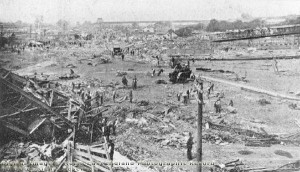
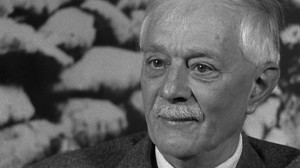
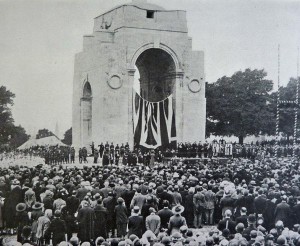 wonderful audio collection of wartime memories
wonderful audio collection of wartime memories